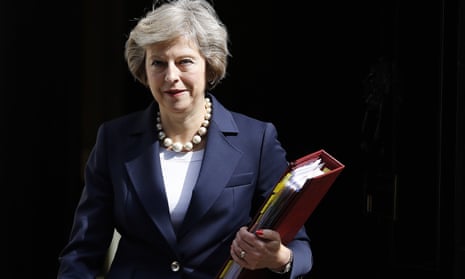Before the 2015 election I wrote an article speculating on the possible impact of Tory MPs pushing for a return to selection. What interested me then was whether a change of policy might have unintended consequences by propelling powerful arguments against the 11-plus into the spotlight.
That certainly seems to have been the case in the past few weeks since government sources floated the return of a bipartite education system. Passionate arguments, personal stories and solid evidence about the negative effects of selection have been coming from all quarters, including influential figures on the right.
Just as striking has been the pathetic weakness of the arguments in favour of grammar schools. I have heard them many times over the years in my own campaigning on school admissions. Now they are laid bare for all to see.
The first is what I am going to call from now on the Peckham to Parliament argument, in honour of Chris Philp, the young Tory MP with whom I debated the issue on Channel 4 earlier this month. Philp’s support for selection was rooted firmly in his own life trajectory from a non-privileged home to Westminster, a journey he attributed mainly to his grammar school education. It is said Theresa May’s most valued adviser, Nick Timothy, also supports grammars because of his personal experience.
There will always someone whose life was apparently transformed by a grammar school, just as there will always be those for whom failing the 11-plus was a catastrophic setback.
But anecdotal stories make for poor policy and the hard facts are clear. Most children in grammars have always come from better-off homes. This was one of the findings of the 1959 Crowther report into 14-19 education. Sixty years on, the most up-to-date government data, on which we reported exclusively three weeks ago, shows that little has changed.
Secondary modern schools, which no one is campaigning to bring back, have by contrast always been home to a disproportionate number of children from poorer families and children with special educational needs or disabilities.
Then there is the dangerous, outdated and thoroughly unscientific idea that there are “clever” children and the rest. In a recent radio debate a pro grammar campaigner actually suggested we should have grammar schools from 11 for academic children and vocational schools for the rest.
Far fetched, I know, but there is an uncomfortable conviction lurking beneath the concept of dividing children up on the basis of a test that many take aged 10. That is the belief that intelligence, ability and human potential are rigidly fixed and unaffected by family income, parental support or sheer personal endeavour.

Does May really believe this? Somehow I doubt it; it would be a dismal view of humanity. So why even toy with this extremely bad idea?
In a final ludicrous twist to this debate it has been suggested simultaneously that we need more grammar schools to increase access for poorer children and that we should have only 20 or so in certain types of communities for specific families.
The lame argument flails around between grammar schools for deprived children and grammar schools exclusively for aspiring low- and middle-income parents. Perhaps May is planning on introducing means testing and (so called) ability testing at the same time?
That such contortions are even taking place in the heads of the people dreaming up education policy is evidence that they know the truth. There is only one logical argument for grammars and that is a belief in an education system geared to a small elite at the expense of the rest.
It doesn’t matter whether you introduce one grammar school or 101, in that community you reintroduce the idea of rejection and a second-class education for most children. At a time of teacher shortages this could have even more damaging consequences for those left behind.
And we know where this story ends – just go back and read the history of the early 1960s, when Tory ministers were harangued by aspirant parents sick of their children being branded failures at 11.
If May wants to see what that looks like today she needs to look no further than her own back yard, where a vibrant cross-party campaign seems to be holding off the idea of a new grammar school annex in her currently comprehensive constituency.
I would have more respect for the proponents of selection if they would just admit they want a return to a two-tier education system. But of course they can’t do that. It would be unpopular and expose the entire May social justice mission for what it is – a bunch of empty words.
In the meantime I am tempted to say about these thoroughly unconvincing arguments: bring them on. We will be waiting.











